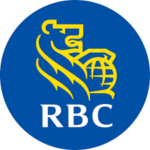The entire team at Financial OX welcomes you to Canada!
As a newcomer to Canada, one of the key areas you’ll want to focus on is personal finance.
Managing your money effectively is crucial for building a secure future and achieving your financial goals.
This ultimate checklist aims to provide you with essential steps and considerations to navigate the Canadian financial landscape.
By following this checklist, you’ll gain a solid foundation in personal finance, empowering you to make informed decisions and effectively manage your money.
Let’s dive in!
Table of Contents
1. Understand Your Province/Territory
Understanding the province or territory you reside is key to managing your personal finances effectively.
Each province and territory in Canada has its own specific rules and regulations regarding taxes, healthcare, housing, job, education, and other important aspects of daily life.
To begin, familiarize yourself with the tax system in your province or territory, as it will impact your income and expenses.
Next, research the healthcare system in your province or territory. Understand how to access medical services, enroll in health insurance programs, and obtain necessary coverage.
Additionally, investigate housing options and rental laws specific to your province or territory.
Lastly, explore educational opportunities, eligibility, assistance, grants, and resources available in your province or territory.
2. Get a SIN
As a newcomer to Canada, obtaining a Social Insurance Number (SIN) is mandatory in assessing many services and products in the country.
A SIN is a unique nine-digit number issued by the Canadian government that serves as a crucial identification for various purposes, including taxation and employment.
You can apply for SIN online or in person at the nearest Service Canada Office. You can apply for yourself and your kids. Children aged 12 and above are expected to apply by themselves
Having a SIN is necessary for numerous financial activities, such as opening a bank account, getting a job, filing taxes, and accessing government programs and benefits.
It is important to safeguard your SIN and avoid sharing it unnecessarily to prevent identity theft or fraud.
3. Open a Bank Account
Opening a bank account is another key checklist for newcomers to Canada.
When opening a bank account, you will typically have the option to choose between a savings account and a chequing account.
Understanding the difference between these two types of accounts is crucial for effective money management.
- A chequing account is designed for everyday transactions and day-to-day financial activities. It allows you to deposit and withdraw money easily, write cheques, make debit card transactions, and set up automatic bill payments.
- A savings account is primarily meant for saving money over a longer period. It generally offers a higher interest rate than a chequing account.
Given the importance of chequing and saving accounts, you want to open both accounts.
But when choosing a bank account in Canada, you need to consider the following factors
- Monthly fees (plus common banking fees)
- Income eligibility
- Transaction limits
- Minimum balance
- Benefits and perks
Most banks in Canada welcome newcomers with different bank account promotions. Click here to learn about bank account promotions for newcomers to Canada.
Recommended Posts:
4. Sign-up For a Credit Card
Obtaining a credit card can be instrumental in establishing a credit profile, which is crucial for various financial activities such as renting an apartment, getting a loan, or even securing a cellphone plan.
When selecting a credit card, you need to consider options specifically designed for individuals with limited or no credit history, such as secured credit cards or credit cards for newcomers.
Using a credit card wisely can also offer additional benefits. Many credit cards come with rewards programs that provide cashback, points, or travel miles, allowing newcomers to earn rewards while making everyday purchases.
However, it is crucial to understand the terms and conditions of the credit card, including interest rates and fees, to avoid any potential financial pitfalls.
Recommended Posts:
- Best Credit Cards in Canada
- How is Credit Score Calculated in Canada
- How to Increase Your Credit Score Fast in Canada
- Best Free Credit Monitoring Services in Canada
5. Get a Job
One of the essential items on the personal finance checklist for newcomers to Canada is to secure a job.
Finding employment is crucial as it provides a source of income and enables you to support yourself financially. Here are some key points to consider:
- Familiarize yourself with the local job market, and Canadian employment laws, including minimum wage, working hours, vacation entitlements, and employee benefits.
- Tailor your resume to Canadian standards,
- Utilize job search websites (e.g. Indeed, Monster, Glassdoor), company career portals, and recruitment agencies to find suitable job openings.
- Research common interview questions, practice your responses, and learn about Canadian workplace culture.
Recommended Posts:
- 10 Best Online Part-Time Jobs in Canada
- 15 Legit Side Hustles That Pay Weekly
- 12 Best Passive Income Ideas in Canada
- 15 Legit Ways to Make Money Fast in Canada
6. File Your Taxes
Every Canadian resident is required to file taxes annually even if they earned no income in the previous year.
Filing your taxes serves several purposes. Firstly, it ensures that you are in compliance with Canadian tax laws and helps you avoid penalties or legal issues.
Additionally, by filing your taxes, you become eligible for various tax credits and benefits that can help you save money.
It is important to keep track of your income and expenses throughout the year to ensure accurate reporting.
If you are unsure about the tax filing process, it is advisable to seek assistance from a professional, such as an accountant or tax preparer.
They can help you navigate the complexities of the tax system and ensure that you maximize your eligible deductions and credits.
Filing your taxes on time not only helps you fulfill your legal obligations but also allows you to take advantage of potential tax benefits and refunds.
Recommended Posts:
7. Understand Registered Accounts
In Canada, there are registered and unregistered accounts. Registered accounts offer tax advantages while unregistered accounts are normal accounts with no tax advantage.
There are three major types of Registered Accounts in Canada: Tax-Free Savings Accounts (TFSA), Registered Retirement Savings Plan (RRSP), and Registered Education Savings Plan (RESP).
Understanding the benefits and limitations of these Registered Accounts is crucial for optimizing your personal finance strategy in Canada.
Learn more about the above accounts under the following posts:
- Pros and Cons of TFSA
- RRSP Advantages and Disadvantages
- Registered Education Savings Plans and Related Benefits
8. Start Preparing For Retirement
Another important item on this checklist is preparing for retirement.
In Canada, there are several retirement income sources to consider, including the Canada Pension Plan (CPP), Old Age Security (OAS), Guaranteed Income Supplement (GIS), and workplace pension plans.
In addition to government programs, many employers offer workplace pension plans, which are retirement savings programs provided by the employer.
These plans often involve contributions from both the employee and the employer, helping you save for retirement while you are working.
9. Start Saving and Investing
You need to start saving and investing as soon as you can to build a financial safety net.
One of the popular ways Canadians save is through a High-Interest Savings Account (HISA).
HISAs offer competitive interest rates compared to regular savings accounts. The best HISAs are usually offered by online-only banks such as:
- Tangerine Bank
- Saven Financial
- AcceleRate Financial
- Simplii Financial
- Achieva Financial
- Maxa Financial
- Hubert Financial Review
Additionally, you may consider investing in Guaranteed Investment Certificates (GICs). GICs are low-risk investments that offer a fixed rate of return over a specific period. Check out the best GIC rates in Canada.
When it comes to long-term goals, such as retirement or buying a home, it is important to invest in assets that align with your risk tolerance and objectives. This could include investing in a diversified portfolio of:
- Stocks
- Bonds
- Mutual funds
- Exchange-Traded Funds (ETFs)
Consulting with a financial advisor can help you determine the best investment strategy based on your risk tolerance and goals.
Recommended Posts:
- 10 Safe Investments With High Returns in Canada
- Best-Performing Mutual Funds in Canada
- Best All-in-One ETFs in Canada
- How to Invest in Real Estate in Canada
10. Start Preparing for Home Ownership
As a newcomer to Canada, preparing for home ownership should be an essential part of your personal finance checklist.
Firstly, establish a solid credit history in Canada by obtaining a Canadian credit card, making timely payments, and keeping your credit utilization low.
Next, start saving for a down payment. Determine how much you can comfortably afford to put towards a home and set up a savings plan to reach that goal.
Research the housing market and determine the type of home you’re looking for, taking into account factors like location, amenities, and affordability.
Engage with a mortgage broker or financial advisor to get pre-approved for a mortgage and understand your borrowing capacity.
Recommended Post: Best Mortgage Rates in Canada
11. Seek Help
Immigration services can provide valuable guidance and assistance in navigating the complexities of the Canadian immigration system.
Below are the places to get pre-arrival assistance while migrating to Canada:
You can also seek help from a financial advisor who is trained and certified to provide personal financial assistance.
A financial advisor can assist you in creating a budget, managing your expenses, and planning for your future financial needs. They can also help you
- Understand the Canadian banking system,
- Establish credit history
- Explore investment opportunities.
Recommended Post: How to Choose a Financial Advisor in Canada
12. Keep Learning
As a newcomer to Canada, keeping learning about personal finance will help you stay updated and informed.
By leveraging the experiences of others, reading blogs, listening to podcasts, and exploring various resources, you can gain valuable insights and knowledge about managing your finances effectively.
You can frequent our blog section to stay up-to-date about the best personal finance deals in Canada.
Recommended Posts:
Reddit Personal Finance Canada Review: Read Before Joining

